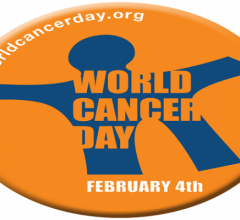
November 9, 2012 — Earlier this year the Pancreatic Cancer Action Network released a report titled, "The Alarming Rise of Pancreatic Cancer Deaths in the United States: Why We Need to Stem the Tide Today," detailing the rising threat of pancreatic cancer. The report reveals the startling observation that based on projections of U.S. population and cancer death rates, pancreatic cancer is anticipated to move from the fourth to the second leading cause of cancer death in the United States by 2020, and possibly as early as 2015.
Pancreatic cancer is the only one of the current top five cancer killers for which both the incidence rate and death rate have increased in recent years. The report further projects that based on the changing demographics of the U.S. population and changes in the incidence rate and death rate, the number of new cases of pancreatic cancer will increase more than -fold and the number of deaths will increase by 2.4-fold by the year 2030.
Pancreatic cancer is the only one of the current top five cancer killers with a projected increase in the number of deaths; deaths from lung, colorectal, breast and prostate cancer are decreasing. Research has resulted in medical improvements that have positively impacted other forms of cancer. In fact, during the past 40 years the five-year relative survival rate for all cancers combined has climbed from under 50 percent to over 65 percent.
Unfortunately, pancreatic cancer has not benefited from these medical advances. Today, there continues to be no early detection tool or effective treatment for pancreatic cancer. The result is that pancreatic cancer is the only one of the top cancer killers with a five-year relative survival rate in the single digits, at six percent.
"This report's revelation that pancreatic cancer will soon become the second leading cause of cancer death in the nation is truly frightening," stated Julie Fleshman, president and CEO of the Pancreatic Cancer Action Network. "Medical advancements and new technologies have generally helped improve cancer patients' chances of survival, but this report shows that these medical improvements have not translated to pancreatic cancer."
The report notes that the survival rate will not improve and the number of pancreatic cancer deaths will only continue to grow unless federal action is taken. According to the report, federal research attention is needed to avoid the current trajectory. The report calls on the passage of the Pancreatic Cancer Research and Education Act (S. 362/HR 733), which is currently before Congress. The bill requires the National Cancer Institute develop a long-term, comprehensive plan of action to address pancreatic cancer. The bill has already garnered significant bipartisan support with nearly 60 Senators and more than 280 members of Congress co-sponsoring the legislation.
"Given the bleak outlook provided by this report, the increased federal attention that the Pancreatic Cancer Research & Education Act would provide is both necessary and timely," added Fleshman. "It is essential that Congress heed this report's warnings and pass the Pancreatic Cancer Research & Education Act by the end of this year. We cannot allow for these grim projections to become a reality, pancreatic cancer sufferers and their families deserve hope."
For more information: www.pancan.org/report


 November 11, 2025
November 11, 2025 








